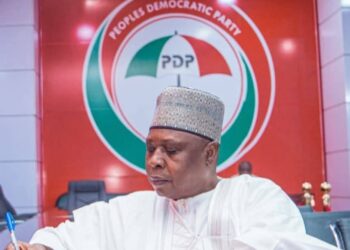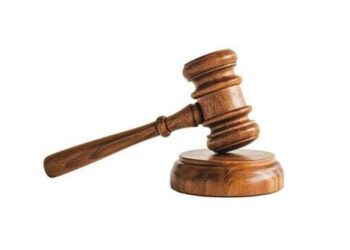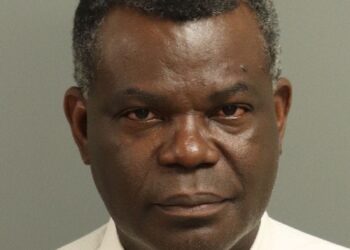By Ebere Agozie
The Chief Justice of Nigeria (CJN) Justice Tanko Muhammad says the judiciary can not be blamed for delays in high profile cases.
The CJN’s position is contained in a statement issued by his Senior Special Assistant on Media on Monday in Abuja.
He said the position of the Minister of Justice and the Attorney-General of the Federation, Abubakar Malami (SAN) that the Judiciary be held responsible for delays in the trial and delivery of judgments in corruption cases involving politically exposed individuals appears to be one-sided.
“The Nigerian Judiciary is not here to lay claims to being perfect but when the political and economic conditions under which it is operating is compared with its counterparts in other climes, it would be adjudged a prize model.
“The Judiciary by its constitutional position does not have a criminal investigations unit or Fraud Detective Squad to detect and investigate criminal involvement of any person, neither does it have a garrison command to fight its cause or enforce its orders and decisions.
“More often than not, the Federal Government’s prosecution sector files more charges than it can prove or provide witnesses, at times as a result the prosecution even fails”.
He said that the Administration of Criminal Justice Act (2015) under reference is infected with sores in some parts, making speeding adjudications impossible in some instances.
“In some instances the high volume of cases, limited number of judges, poor infrastructure or archaic equipment also contribute to the challenges”.
He noted that the federal government had while giving reasons for its under-funding of the Judiciary, on January 26, at the Nigerian Bar Association (NBA) Justice Sector Summit 2022 in Abuja said that the Judiciary has not been transparent in the spending its yearly allocations.
“The Judiciary has refrained from joining issues all this while but to state the facts in line with the budget call circular and ceiling the Federal Government sent to the Judiciary before the beginning of the fiscal year.
”The,Judiciary prepares its budget estimates for capital, overhead and personnel costs according to the ceiling, needs and priority.
“The Judiciary defends its budget before the Senate and House of Representatives Committees on Judiciary at the National Assembly, besides the initial vetting by the Executive.
“It also has an internal mechanism for budget control and implementation. Each Court and judicial body has a budget unit, the accounts department, internal audit, Due Process Unit, as well as Departmental Tenders Board.
“There is also a Due Process Committee at the NJC and the Judicial Tenders Board that award contracts on expenditure above the approval limit of the accounting officers of the Courts and judicial bodies”, he added.
He said the layers of control were established by the Judiciary to ensure transparency, accountability and effective budget implementation.
“Similarly, by virtue of Sections 88 and 89 of the 1999 Constitution, the National Assembly carries out oversight visits to the Judiciary to monitor the implementation of its budget.
“Section 88(2)(b) also mandates the National Assembly to expose corruption, inefficiency or waste in the execution or administration of laws within its legislative competence and in the disbursement or administration of funds appropriated by it.
“The Executive also put in place some mechanism to monitor budget implementation and accountability in the Judiciary through its organs like the office of Accountant General of the Federation and Auditor General of the Federation, and other agencies where the need arises”.
According to him, apart from the internal audit units of the Judiciary, the Federal Audit Department maintains offices in all the courts and judicial bodies that monitor spending in the Judiciary.
“If the Federal Audit raises a query on any transaction and it is not well defended, it sends the report to the Public Accounts Committees of the National Assembly and officials of the Judiciary would be invited to explain themselves.
“The question to ask is, who else should the Judiciary open its account books to, and who among these organs had raised exceptions which were not defended by the Third Arm?
The answer is none.
“One only hopes that these allegations against the Judiciary by the Federal Government is not just a way of giving a dog a bad name so as to hang it”, he concluded. (NAN)


















